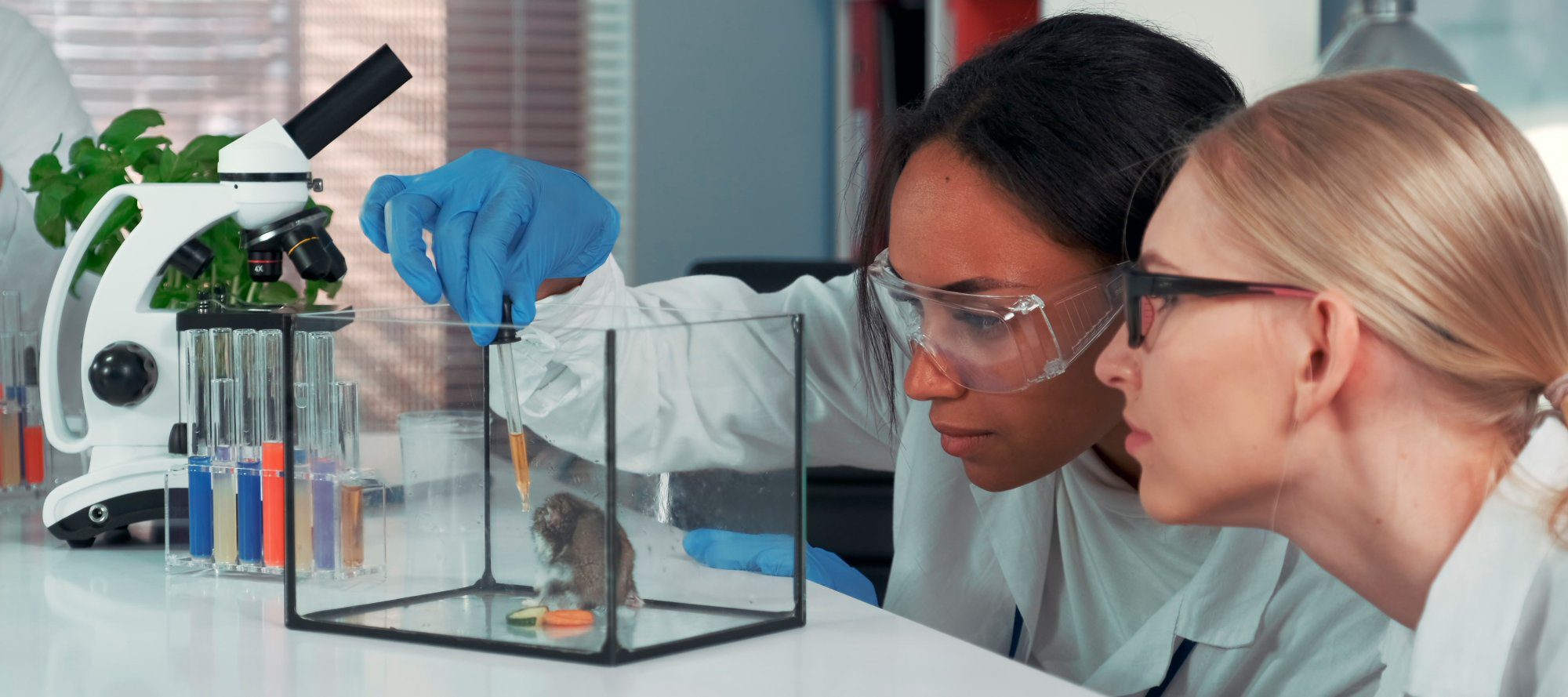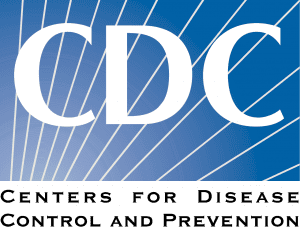- Hospitalizations of Children and Adolescents with Laboratory-Confirmed COVID-19, 14 States, July 2021–January 2022
Coinciding with increased circulation of the Omicron variant, COVID-19–associated hospitalization rates among children and adolescents aged 0–17 years increased rapidly in late December 2021, especially among children aged 0–4 years who are not yet eligible for vaccination. Throughout the periods of Delta and Omicron predominance, hospitalization rates remained lower among fully vaccinated adolescents aged 12–17 years than among unvaccinated adolescents. Strategies to prevent COVID-19 among children and adolescents, including vaccination of eligible persons, are critical. - SARS-CoV-2 reinfection prevents acute respiratory disease in Syrian hamsters but not replication in the upper respiratory tract
The authors in this study point out that reinfection with coronaviruses is not unprecedented and had been clearly demonstrated for three of the four seasonal human coronaviruses: NL63, OC43, and 229E prior to this current COVID-19 pandemic. It is pointed out that before the COVID-19 pandemic, there was already evidence that immunity gained from primary infection with these seasonal coronaviruses can wane quickly. This was referenced by a number of studies including one study demonstrating reinfection within 6 months of primary infection at a rate of 21%, 5.7%, and 4.0% for NL63, OC43, and 229E, respectively. - Direct Observation of Repeated Infections With Endemic Coronaviruses
Although the mechanisms of adaptive immunity to pandemic severe acute respiratory syndrome coronavirus 2 (SARS-CoV-2) are still unknown, the immune response to the widespread endemic coronaviruses HKU1, 229E, NL63, and OC43 provide a useful reference for understanding repeat infection risk. Researchers combined weekly nasal swab collection with self-reports of respiratory symptoms from 191 participants to investigate the profile of recurring infections with endemic coronaviruses. During the study, 12 individuals tested positive multiple times for the same coronavirus. We found no significant difference between the probability of testing positive at least once and the probability of a recurrence for the beta coronaviruses HKU1 and OC43 at 34 weeks after enrollment/first infection. We also found no significant association between repeat infections and symptom severity, but found strong association between symptom severity and belonging to the same family. This study provides evidence that reinfections with the same endemic coronavirus are not atypical in a time window shorter than 1 year and that the genetic basis of innate immune response may be a greater determinant of infection severity than immune memory acquired after a previous infection. - Ivermectin does not protect against SARS-CoV-2 infection in the Syrian hamster model
Ivermectin, an FDA-approved antiparasitic drug, has been reported to have in vitroactivity against SARS-CoV-2. An increasing off-label use of Ivermectin for COVID-19 has been reported. Researchers assessed the effect of Ivermectin in Syrian hamsters infected with the SARS-CoV-2 Beta (B.1.351) variant. Infected animals received a clinically relevant dose of Ivermectin (0.4 mg/kg subcutaneously dosed) once daily for four consecutive days after which the effect was quantified. Ivermectin monotherapy did not reduce lung viral load and even significantly worsened the SARS-CoV-2-induced lung pathology. This study contributes to the growing body of evidence that Ivermectin does not result in a beneficial effect in the treatment of COVID-19. These findings are important given the increasing, dangerous off-label use of Ivermectin for the treatment of COVID-19.
- Respiratory mucosal delivery of next-generation COVID-19 vaccine provides robust protection against both ancestral and variant strains of SARS-CoV-2
The emerging SARS-CoV-2 variants of concern (VOCs) threaten the effectiveness of current COVID-19 vaccines administered intramuscularly and designed to only target the spike protein. There is a pressing need to develop next-generation vaccine strategies for broader and long-lasting protection. Using adenoviral vectors (Ad) of human and chimpanzee origin, we evaluated Ad-vectored trivalent COVID-19 vaccines expressing spike-1, nucleocapsid, and RdRp antigens in murine models. We show that single-dose intranasal immunization, particularly with chimpanzee Ad-vectored vaccine, is superior to intramuscular immunization in induction of the tripartite protective immunity consisting of local and systemic antibody responses, mucosal tissue-resident memory T cells and mucosal trained innate immunity. We further show that intranasal immunization provides protection against both the ancestral SARS-CoV-2 and two VOC, B.1.1.7 and B.1.351. Our findings indicate that respiratory mucosal delivery of Ad-vectored multivalent vaccine represents an effective next-generation COVID-19 vaccine strategy to induce all-around mucosal immunity against current and future VOC. - Sanofi and GSK will seek regulatory authorization for their COVID-19 vaccine
Final analysis of the global VAT02 booster trial confirms universal ability to boost neutralizing antibodies 18- to 30-fold across vaccine platforms (mRNA, adenovirus). In the VAT08 Phase 3 primary series trial, two doses of the Sanofi-GSK vaccine in seronegative populations demonstrated 100% efficacy against severe COVID-19 disease and hospitalizations, 75% efficacy against moderate or severe COVID-19 disease, 57.9% efficacy against any symptomatic COVID-19 disease, in line with expected vaccine effectiveness in today’s environment dominated by variants of concern. In participants who had received a primary series of an already authorized mRNA or adenovirus vaccine, the Sanofi-GSK booster vaccine induced a significant increase in neutralizing antibodies of 18- to 30-fold across vaccine platforms and age groups. When the Sanofi-GSK vaccine was used as a two-dose primary series followed by a booster dose, neutralizing antibodies increased 84- to 153-fold compared to pre-boost levels. - SARS-CoV-2 Omicron triggers cross-reactive neutralization and Fc effector functions in previously vaccinated, but not unvaccinated individuals
Researchers used plasma from 20 unvaccinated and seven vaccinated individuals infected during the Omicron wave in South Africa. They went ahead and tested binding, antibody-dependent cellular cytotoxicity (ADCC), antibody-dependent cellular phagocytosis (ADCP) and neutralization against VOCs. In unvaccinated individuals, they found that Omicron-triggered neutralization was not extensively cross-reactive to other VOCs, with 20 to 43-fold reductions in titer. In contrast, vaccination followed by breakthrough Omicron infection improved cross-neutralization of VOCs, with titers exceeding 1:2,900.
- SARS-CoV-2 Omicron BA.2 Variant Evades Neutralization by Therapeutic Monoclonal Antibodies
Monoclonal antibody therapy for the treatment of SARS-CoV-2 infection has been highly successful in decreasing disease severity; however, the recent emergence of the heavily mutated Omicron variant has posed a challenge to this treatment strategy. The Omicron variant BA.1 has been found to evade neutralization by the Regeneron and Eli Lilly therapeutic monoclonal antibodies, while Sotrovimab and the Evusheld monoclonal antibody cocktail retain significant neutralizing activity. A newly emerged variant, Omicron BA.2, containing the BA.1 mutations plus an additional 6 mutations and 3 deletions, 3 of which lie in the receptor binding domain, has been found to be spreading with increased transmissibility. Researchers report here, using a spike protein-pseudotyped lentivirus assay, that Omicron BA.2 is not neutralized with detectable titer by any of the therapeutic monoclonal antibodies, including Sotrovimab and the Evusheld monoclonal antibodies. The results demonstrate the difficulty of identifying broadly neutralizing monoclonal antibodies against SARS-CoV-2 and the importance of the T cell response from which immunoevasion is more difficult.
Situation Dashboards

World Health Organization (WHO)
Novel Coronavirus (COVID-19) Situation from World Health Organization (WHO)

Johns Hopkins University (JHU)
Coronavirus COVID-19 Global Cases by the Center for Systems Science and Engineering (CSSE) at JHU

COVID-19 in US and Canada
1Point3Acres Real-Time Coronavirus (COVID-19) Updates in US and Canada with Credible Sources

Genomic Epidemiology COVID-19
Genomic Epidemiology of (COVID-19) Maintained by the Nextstrain team, enabled by data from GISAID.






